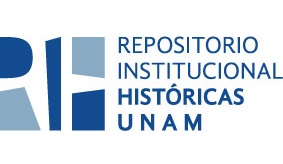Lorenzo Boturini y el pensamiento histórico de Vico
Resumen
There're three aspects about the Botulin’s work: his “guadalupanism” passionate that take him to procure the coronation of virgin Guadalupe; the collection of papers he get during eight years on his stay in New Spain, and the last and maybe the principal, the use of philosophy of history of Vico (the first of the modern age), that Boturini made to the ancient history of México. This fact begins the try to understand the historic realities to the light of systems given as universals. This work of Álvaro Matute is one of those indispensables in the study and comprehension of the modern historiography: in his words, “to get apart the methodologic relations between the historiographical paper and the core of the ideas”. This work starts with a synthesis of the life and work of Boturini, his thought after the apparition of the Indian Museum, an analysis of Vico’s thought about history and intellectual environment where these were grown, finally this work ends with an interesting analysis of the application of the viquinian system to the Náhuatl culture and personal appreciations about it. Tres son los aspectos que dan relevancia a la obra del milanés Boturini: su ferviente guadalupanismo, que lo llevó a procurar la coronación de la virgen de Guadalupe; la importante colección de documentos –el Museo indiano– que reunió durante su estancia de ocho años en la Nueva España y, por último y quizá lo principal, la aplicación de la filosofía de la historia de Vico (la primera de la época moderna), que Boturini hizo a la historia antigua de México. Este hecho inicia los intentos por comprender realidades históricas específicas a la luz de sistemas postulados como universales. La tarea que emprende Álvaro Matute en este libro es de las que consideramos imprescindibles para los estudios de historiografía: en sus palabras, “deslindar las relaciones metodológicas existentes entre una obra historiográfica [el Museo indiano] y el núcleo central de ideas del cual depende [el pensamiento viquiano]. Para ello comienza con la vida y obra de Boturini (capítulo I); revisa después los juicios emitidos en los 230 años transcurridos desde la aparición del Museo indiano (1746), para continuar con el análisis de las ideas de Vico sobre la historia y el ambiente intelectual donde éstas se desarrollaron (capítulos II y III); concluye este breve e interesante trabajo con el análisis de la aplicación del sistema viquiano a la cultura náhuatl y sus apreciaciones personales acerca de ello (capítulos IV y V).
Cómo citar
Matute, Álvaro. Lorenzo Boturini y el pensamiento histórico de Vico. Serie Historia Novohispana 26. México: Universidad Nacional Autónoma de México. Instituto de Investigaciones Históricas, 1976. http://hdl.handle.net/20.500.12525/3389Consulte el texto completo
Acceder al recursoOtro formato disponible
PrintAparece en las colecciones
Excepto si se señala otra cosa, la licencia del ítem se describe como https://creativecommons.org/licenses/by-nc-sa/4.0/deed.es




